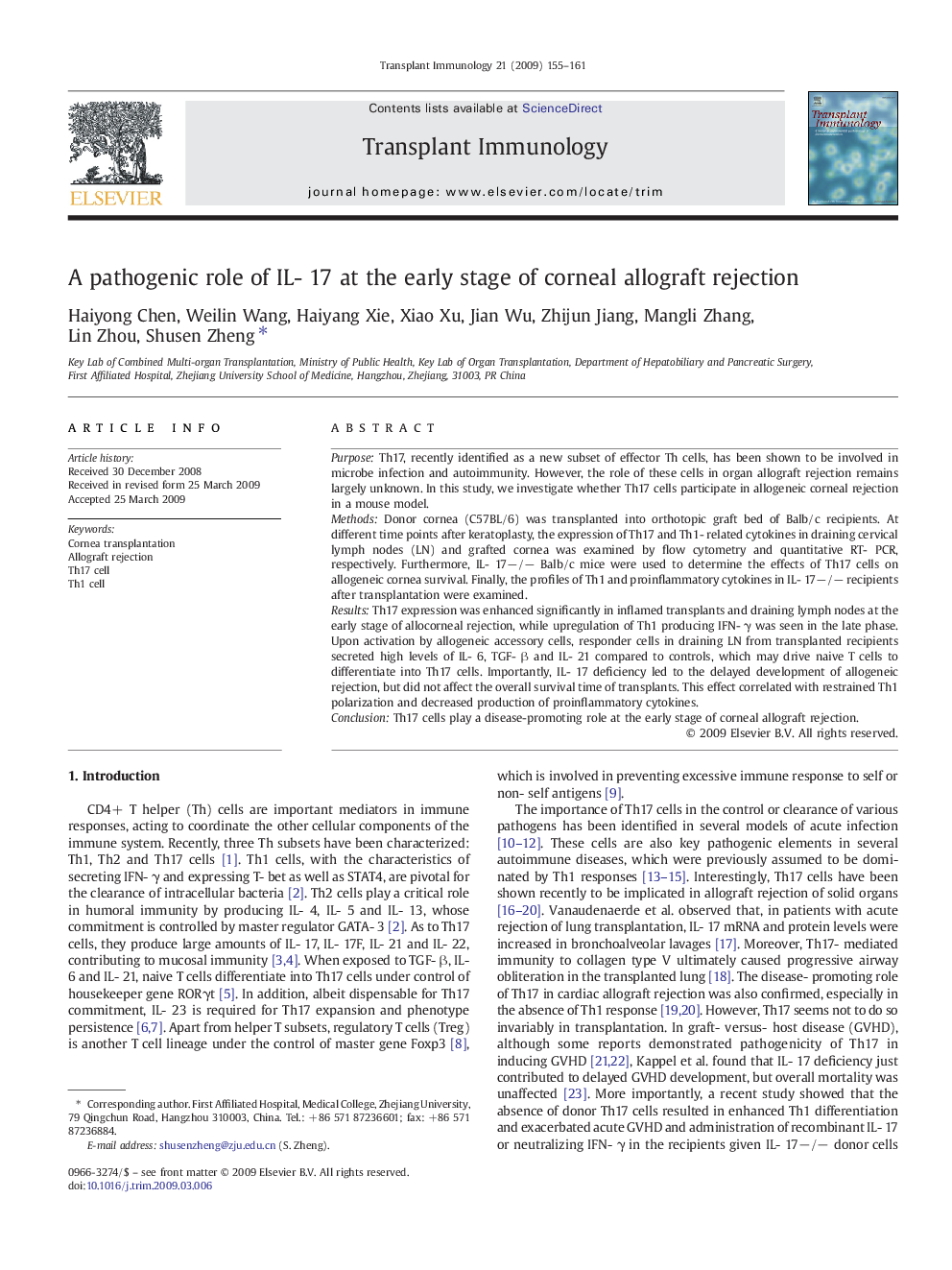| Article ID | Journal | Published Year | Pages | File Type |
|---|---|---|---|---|
| 3392290 | Transplant Immunology | 2009 | 7 Pages |
PurposeTh17, recently identified as a new subset of effector Th cells, has been shown to be involved in microbe infection and autoimmunity. However, the role of these cells in organ allograft rejection remains largely unknown. In this study, we investigate whether Th17 cells participate in allogeneic corneal rejection in a mouse model.MethodsDonor cornea (C57BL/6) was transplanted into orthotopic graft bed of Balb/c recipients. At different time points after keratoplasty, the expression of Th17 and Th1- related cytokines in draining cervical lymph nodes (LN) and grafted cornea was examined by flow cytometry and quantitative RT- PCR, respectively. Furthermore, IL- 17−/− Balb/c mice were used to determine the effects of Th17 cells on allogeneic cornea survival. Finally, the profiles of Th1 and proinflammatory cytokines in IL- 17−/− recipients after transplantation were examined.ResultsTh17 expression was enhanced significantly in inflamed transplants and draining lymph nodes at the early stage of allocorneal rejection, while upregulation of Th1 producing IFN- γ was seen in the late phase. Upon activation by allogeneic accessory cells, responder cells in draining LN from transplanted recipients secreted high levels of IL- 6, TGF- β and IL- 21 compared to controls, which may drive naive T cells to differentiate into Th17 cells. Importantly, IL- 17 deficiency led to the delayed development of allogeneic rejection, but did not affect the overall survival time of transplants. This effect correlated with restrained Th1 polarization and decreased production of proinflammatory cytokines.ConclusionTh17 cells play a disease-promoting role at the early stage of corneal allograft rejection.
